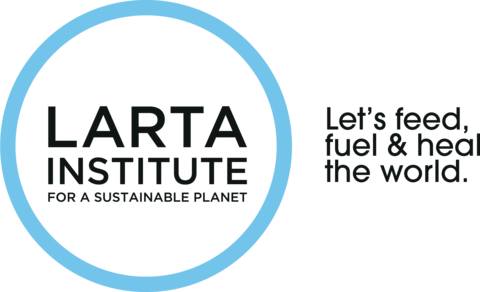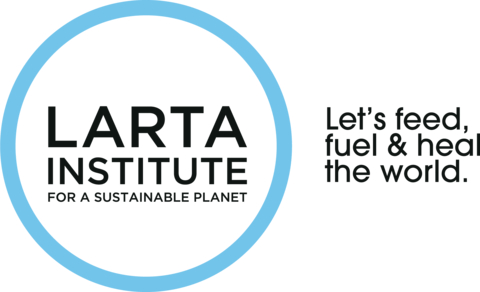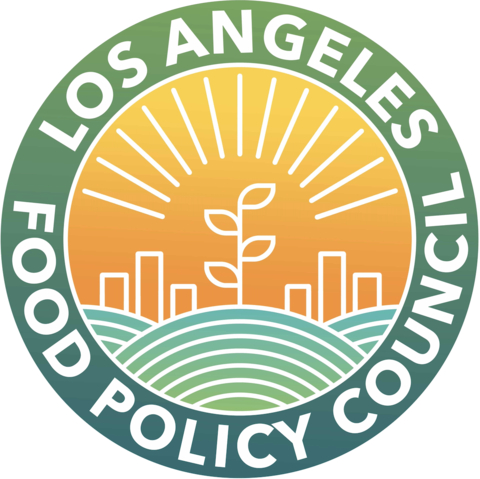LOS ANGELES--(BUSINESS WIRE)--Larta Institute, a non-profit organization accelerating innovation and entrepreneurship to feed, fuel and heal the world, and the Los Angeles Food Policy Council (LAFPC), a collective-impact organization representing over 400 entities striving for equitable, sustainable and just food systems in Los Angeles, unveiled today a deeply researched study on the past, present and future of urban agriculture in Los Angeles. The report, titled "Rooted Horizons: Growing Food by and for Angelenos" ("Rooted Horizons"), identifies infrastructural, bureaucratic and operational challenges facing urban farmers and suggests recommendations to advance urban agriculture in LA County.
“Rooted Horizons” explores the problems and promise related to LA County's role in the American food system. Despite being a major food exporter, one in four households in LA County grapples with food insecurity. The report calls for prioritizing urban agriculture within the county to root the development of urban farms more firmly in the region. This strategy recognizes the potential of localized food production and its integration with community-centered approaches to food and nutrition.
Key points highlighted in the report include:
- Advocating for community engagement to foster direct connections between residents and their food, facilitated by small farms within residential spaces throughout the county.
- Calling for the creation of methods and infrastructure to aggregate and scale products from small urban farms, offering both economic and social benefits.
- Exploring the creation of hyperlocal food hubs that provide urban agricultural entrepreneurs and communities with technical assistance, marketplaces and access to private and public funding.
- Advocating for closer integration of well-established food assistance programs like CalFresh into a comprehensive urban agriculture program.
“Urban agriculture will play a significant role in paving the way for food sovereignty in Los Angeles. At the same time, urban farming is also a potent instrument in mitigating the effects of climate change,” said Alba Velasquez, executive director of the Los Angeles Food Policy Council. “The methods we employ to cultivate, manufacture and circulate food have a direct influence on the nearby ecosystem. By endorsing local farmers, we not only enhance the availability of locally grown, nutritious food choices, but also play an active role in bolstering the micro-economy, thereby promoting it as a sustainable business model.”
“Rooted Horizons” was funded by a grant to Larta Institute from the California Community Foundation (CCF) and builds upon the substantial efforts over the past two years of the Los Angeles Food Equity Roundtable, an innovative cross-sectional partnership that focuses on addressing disparities within the local food system and advocates for integrated food distribution and development strategies across Los Angeles County. The Roundtable is supported by the Annenberg Foundation, CCF, and the Weingart Foundation, and is co-chaired by Los Angeles County.
“‘Rooted Horizons’ builds on findings of the Food Equity Roundtable’s strategic action plan, which called for increased support for and expansion of urban agriculture,” said Lauren Uy, program associate at the California Community Foundation. “CCF is eager to continue to uplift urban agriculture as a means not only of achieving food justice, but also environmental justice, economic justice, and more, and ‘Rooted Horizons’ provides practical recommendations to advance urban agriculture in our city.”
The report adopts a holistic approach to urban agriculture, drawing from historical agricultural practices, including Indigenous wisdom. This approach not only revives the region's agricultural heritage, but also generates economic opportunities spanning various occupations, ultimately benefiting communities across the region. Compton, a city within LA County, is cited as an exemplar for facilitating urban farming and is recognized in the study for its clear regulatory pathways and strategies that empower urban agriculture.
"In keeping with Larta’s long national engagement in food and agriculture, we are honored to contribute our insights and experience to ‘Rooted Horizons’ with the goal of advancing urban agriculture entrepreneurship and community resilience in our hometown,” said Rohit Shukla, founder and chief executive officer of Larta Institute. “We greatly value the research and knowledge provided by the Los Angeles Food Policy Council and we will work to advance the report’s recommendations through initiatives with our partners.”
The report surveyed urban growers and through selected case studies, highlighted their needs, the challenges of dealing with a multi-jurisdictional environment, including the one-size-fits-all environment in zoning and regulation, and calls for several specific actions in addressing both the problems and the promise of urban agriculture. Erika Cuellar, co-founder of ALMA Backyard Farms, which is profiled in “Rooted Horizons,” challenges community leaders to “focus on the civic, infrastructural and relational supports [that] need to be built … to embody true food security and food justice in Los Angeles.”
“Knowing the great potential of LA County as an important source for urban agriculture, this report offers a valuable and necessary action plan to help address the critical issue of food insecurity in our region,” said Cinny Kennard, executive director of the Annenberg Foundation and co-chair of the Los Angeles County Food Equity Roundtable. “‘Rooted Horizons’ provides tangible steps to make quality, affordable food more accessible as we empower community growers and residents to create systems that help improve access to healthy foods.”
Read the report here: www.larta.org/rooted-horizons
About Larta Institute
Larta Institute is a 501(c)(3) non-profit organization accelerating innovation and entrepreneurship. Our mission is to foster science and technology innovation for a sustainable planet.
Our planet is experiencing significant global problems created by human behavior and policies affecting the environment, food, education, energy and healthcare systems. New science and technology play a critical role in transforming how we sustainably feed, fuel and heal the world.
LARTA was founded in 1993 and funded by the State of California as the Los Angeles Regional Technology Alliance to stimulate the economic development of technology-based enterprises. Now known as Larta Institute, the organization has become a national partner for numerous federal government agencies — including DARPA, NIH, DOE, NSF, NIST, NOAA and USDA — to commercialize novel research and innovation.
Today, Larta Institute’s innovation platform and ecosystem accelerate new science and technology from idea to sustainable enterprise by providing a unique combination of connections, resources and funding.
We have helped over 4,500 startups, and our alumni have raised more than $7 billion in external funding.
Together, let's feed, fuel and heal the world. To learn more, visit: www.larta.org
About the Los Angeles Food Policy Council (LAFPC)
We work to ensure food is healthy, affordable, fair and sustainable for all. We are the largest Food Policy Council in the United States. LAFPC believes Good Food for All is possible and that all communities deserve access to good food, grown in a way that respects people and the planet. LAFPC works to create a local food system free from hunger, rooted in equity and access, supportive of farmers and food workers, and guided by principles of environmental stewardship and regeneration. We catalyze, coordinate and connect people across the Los Angeles region, including government, business and community groups working on food.





